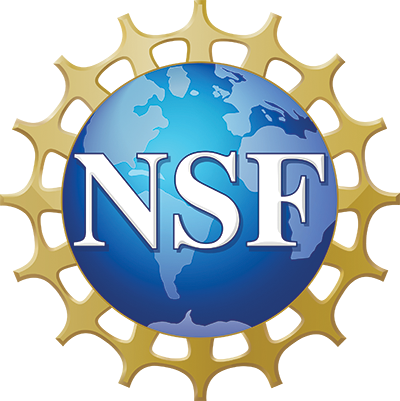Agenda and Materials
This page is continually being updated with materials from the CI4MF 2024. Please check back for more slides and recordings, as they become available.
Day 1
Wednesday, January 17, 2024
| Time | Title | Speaker |
| 7 a.m. | Breakfast | |
| 8 a.m. |
Workshop Welcome |
Ewa Deelman, Director and Principal Investigator (PI) of CI Compass |
| 8:15 a.m. |
Keynote: Leveraging NSF's Cyberinfrastructure to Support Major Facilities Research |
Katie Antypas (NSF, OAC) |
| 9 a.m. |
Update on CI Compass Activities FAIR Data Topical Working Group CI Community Building: Surveys CI Compass Fellowship Program Cloud Topical Working Group: Cloud Report |
Introduction: Ewa Deelman FAIR Data TWG: Don Brower CI Community Building: Kerk Kee CICF Program: Angela Murillo Cloud TWG: Bob Flynn, Internet2 |
| 10 a.m. |
Coffee Break |
|
| 10:30 a.m. |
Panel: Major Facilities (MF) Approach to Open Science: FAIR Data, Persistent Identifiers, etc. Large facilities deal with a large number of datasets, and complicated datasets. This data is useful to both scholarship as well as daily life. This raises questions of how to manage this data to enable its reuse by researchers and the public. Specifically, what kinds of systems have proved useful and not useful? Are there any small steps can we take to improve interoperability between facilities and scientists, and make good use of our cyberinfrastructure?
|
Moderator: Don Brower - Slides Panelists: David Butcher (MagLab) - Slides Jonah Kanner (LIGO) - Slides Monica Youngman (NOAA/NCEI) - Slides Amber Boehnlein (JLab) - Slides Shawna Sadler (ORCID) - Slides |
| 12 p.m. | Lunch Break and Group Picture | |
| 1:45 p.m. |
Lightning Talks Community Presenters
|
Benedikt Riedel (IceCube) Tyson Swetnam (CyVerse) Michael Zentner (SDSC/SGX3)
|
| 3 p.m. | Coffee Break | |
| 3:30 p.m. |
Breakout Session 1 Making MF Data More Accessible: Data Visualization and Analytics The data generated, hosted, and used by NSF Major Facilities challenges the existing national cyberinfrastructure because of its size and complexity. The need to easily analyze, visualize, and share the data is key to making sure each facility fulfills its mission. Still, technological, infrastructure, and cultural challenges hinder this important part of the data lifecycle. In this breakout session, moderated by Dr. Valerio Pascucci and Dr. Dan Stanzione, we invite you to participate in a dialog about the specific needs and challenges that your community faces. Participating offers an excellent opportunity for the exchange of knowledge, establishing collaborations, and shaping the trajectory of cyberinfrastructure development in support of scientific discoveries. Please share your experiences, perspectives, and visions with the group to collectively shape the future of computational scientific research. |
Speakers: Dan Stanzione (TACC) Valerio Pascucci, co-PI of CI Compass |
| 3:30 p.m. |
Breakout Session 2 Use of National CI for MFs and Their Users Join us for this pivotal session focusing on the use of national advanced computing infrastructure by NSF Major Facilities. Moderated by seasoned experts in building cyberinfrastructure for sciences, Dr. Jarek Nabrzyski and Dr. Miron Livny, this session aims to engage the major facilities community in a vital dialogue. We invite contributions that discuss the challenges and aspirations regarding national cyberinfrastructure resources. Share your experiences, insights, and visions to collectively shape the future of computational support in scientific research. This session is an excellent opportunity for collaboration, learning, and influencing the trajectory of cyberinfrastructure development in support of groundbreaking scientific endeavors. |
Speakers: Jarek Nabrzyski, co-PI of CI Compass, founding director of the Center for Research Computing at the University of Notre Dame Miron Livny (OSG) |
| 4:45 p.m. |
Breakout Session Reports Back |
|
| 5:05 p.m. |
Reception |
|
| 7 p.m. |
Dinner (not provided, but groups encouraged) |
Day 2
Thursday, January 18, 2024
| 7 a.m. | Breakfast | |
| 8 a.m. | Day 2 Welcome | Ewa Deelman |
| 8:05 a.m. |
Invited Talk: Enabling Open Science and Data Sharing: Trust, Provenance, and Data Integrity Open Science is driven by knowledge discovery and innovation and fueled by the wide dissemination of scholarly publications and data. Information Assurance (inclusive of cybersecurity, data protections (including privacy), cyber risk management, and resilience) provides tools that support the practical implementation of FAIR principles. This talk explores how FAIR, Information Assurance, and Research Security are related and why each domain needs to better recognize their shared concerns. |
Michael Corn, NSF/CORF |
| 8:30 a.m. |
Panel: Coordinating and Combining Data Processing, Movements, and Storage Major facilities use a wide variety of approaches to acquire, process and store many types of data in support of their goals. A common thread however is the ever increasing speed at which these processes take place and wider and wider bandwidths and storage volumes required to support them. Simultaneously, advances in hardware and software allow for rethinking and repositioning of where some of the steps in these workflows take place. The general paradigm of acquire-transport-store-process gives way to more flexible pipelines where some of the intelligence and computation is migrating closer to the source of the data or into the network. This panel will discuss how different and diverse facilities deal with orchestrating the processes supporting their data acquisition and processing workflows and where they see future trends taking them. |
Moderator: Ilya Baldin, senior personnel of CI Compass Panelists: Benedikt Riedel (IceCube) Julio Ibarra (AmLight, RAPTOR, EnviStor) Chris Romsos (RCRV/ARF) Rob Casey (EarthScope) |
| 10 a.m. |
Coffee Break |
|
| 10:30 a.m. |
Invited Talk: Designing Cyberinfrastructure for the Antarctic Research Vessel The Antarctic Research Vessel (ARV) Project involves the design and eventual construction and delivery of a new icebreaking research vessel to replace the current vessel, Nathaniel B. Palmer. The project is just finishing the preliminary design phase and Cyberinfrastructure is a key component of the design focus. As a research vessel, the ARV is a floating laboratory and data gathering system operating in the harsh environments of Antarctica and the Southern Ocean. Early planning is critical to ensure that data from all the installed instrumentation and that brought on board by embarked scientists is captured, distributed, analyzed and archived. In addition, modern day ships systems such as propulsion, navigation, communications and life support all rely on a robust cyberinfrastructure. This talk will give an overview of the process and extent of the Cyberinfrastructure design for ARV. |
Speaker: Mike Prince (NSF/GEO/OPP/AIL) |
| 10:50 a.m. |
Lightning Talks: 2 Community Presenters |
Speakers: Shawna Sadler (ORCID) Renaine Julian (FSU/NSF FAIR Facilities and Instruments) Jim Basney (TrustedCI) Jameson Rollins (LIGO) Meredith Goins (World Data system) |
| 11:50 a.m. | Lunch | |
| 1:15 p.m. |
Panel: If I knew then what I know now, I would have never designed it this way: Approaches to CI conceptualization and design The NSF Major Facilities (MFs) are major investments to advance research in several fields of science and engineering, providing state-of-the-art instruments, networks, observatories, accelerators, telescopes, research vessels, etc. to the scientific communities they serve. Cyberinfrastructure (CI) is a critical component of the MFs, which enables the transformation of raw data into more interoperable and integration-ready data products that can be visualized, disseminated, and transformed into insights and knowledge. Being very large investments, MFs go through several lifecycle stages. Significant effort goes into planning and designing the components of a MF, as they are constructed, eventually going through operations and periodic enhancements. These different points in an MF lifecycle have significant implications on how the CI supporting the MF is conceptualized, designed and evolved over time. This session will discuss (a) what the important factors should be considered when designing the CI for a new MF, (b) how should the CI requirements from the scientific community be captured and integrated into the CI design, (c) what should be considered to offer flexibility in the design to accommodate future changes and technology evolutions, and (d) how should CI enhancements be designed once MFs go into operations and how MF CI should be evolving during operations. We will hear from panelists - representatives from MFs who have experienced different lifecycle stages - about lessons learnt and best practices in CI conceptualization and design and pitfalls that should be avoided in the future. |
Moderators: Jarek Nabrzyski and Robert Casey Panelists: Rob Casey (SAGE/GAGE) Frank Wuerthwein (LHC) Dan Stanzione (TACC) Sabine Botha (CXFEL) |
| 2:30 p.m. |
Tabletop Discussions What are the challenges you are facing in your work? |
Speaker: Ewa Deelman (CI Compass/USC) |
| 2:55 p.m. |
Workshop Closing Remarks |
Speaker: Ewa Deelman (CI Compass/USC) |
| 3 p.m. |
Social Coffee Hour |
|






